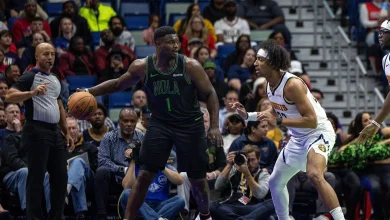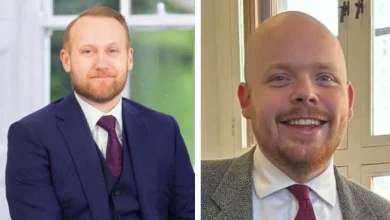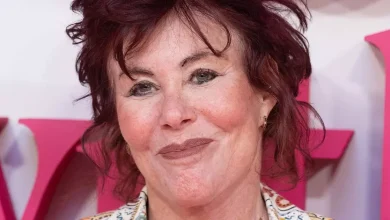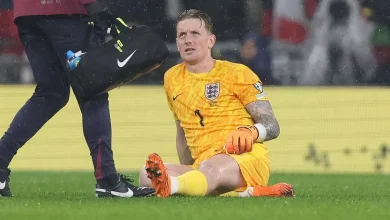Malala Yousafzai: “Someone asked me if getting shot was a blessing in disguise.”
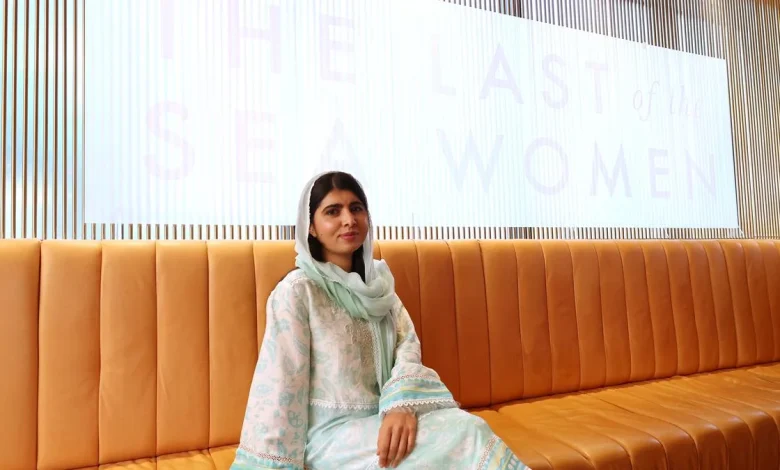
Malala Yousafzai cannot understand why people are shocked that she has grown up. “When people meet me, they still think about the story of a 15-year-old Malala,” she says during an interview over a Zoom call.
It is 10 a.m. on the east coast of the United States, where Malala has flown to promote her memoir, Finding My Way (published by Orion Publishing Group/ Hachette India). Dressed in a white sweater and a purple scarf, her hair cascading over her shoulders, she admits that book tours can be hectic.
The story of 15-year-old Malala, who was shot in the head by the Taliban simply for going to school, was chronicled in the book, I Am Malala. Now, at 28, the activist is eager to remind us that she is not frozen in time. “Whenever I meet people, they call me brave and strong,” she says. “And I pause and wonder whether I am really meeting those definitions. Hopefully, when people read my new story, they will realise that I am not confident all the time and that I do have moments of doubt.”
Making friends on campus
In Finding My Way, Malala writes about her life after the attack and how she navigated early adulthood. With a bullet lodged in her skull, Malala was whisked away from Pakistan to Birmingham. Far from being the celebrity activist that the world knew, she was often ignored by her classmates there, and lonely. But she studied hard and earned a place at Oxford University. Ironically, for a fierce advocate of education, Malala’s priority was not studies; it was making friends. She writes, “There’s a saying that every Oxford student knows: ‘College is study, sleep, and social life — but you can only pick two’. It didn’t take long to decide that one was enough for me.”
Refusing to be tied down either by rigid Pashtun norms or her public image, Malala became a rebel in college, attending parties, rowing in jeans (which caused a controversy in Pakistan), and climbing the bell tower at night. In the midst of discovering herself, she continued to give talks around the world to pay for her parents’ mortgage. All this activity naturally took a toll on her grades.
As with any young adult coming into their own in college, Malala writes that she had a fraught relationship with her mother, who constantly monitored what she wore, scolded her, and once even smacked Prince Harry’s arm when he draped it around her daughter’s shoulders. Malala has always admitted in interviews that she has been closer to her father.
Malala Yousafzai addresses a gathering of young women near the UN Headquarters in New York City.
| Photo Credit:
Getty Images
But during this interview, she is eager to unpack the reasons behind her complex relationship with her mother, whose unsparing nature, she believes, stems from a desire to shield her from the violence of patriarchy. “My mum is a fascinating, strong woman. She has been strict and she has told me off many times, but that’s because she is always concerned. Her natural instinct is to do everything she can to protect a girl from harm because, in her village, girls and women were not just told off when they did something ‘wrong’; they were pulled out of school, never allowed to work, and killed in the name of honour.”
Over time, she and her mother have often found ways of thrashing out their differences, she says. “I tell her that people from certain communities will always find an excuse to silence a woman. As soon as a girl starts to have a voice and follow her dreams, they begin having a problem with everything she does, from what she wears to how she keeps her hair. So, now we have come to some sort of an agreement.” Surprisingly, neither of her parents had read the book at the time of the interview. Malala tells me that keeping the book away from them was a “hard but important decision to take,” so she could be true to her own story.
Malala Yousafzai and Asser Malik.
| Photo Credit:
Getty Images
Life after marriage
It is this same fierce independence that has shaped her romantic life as well. When she was at Oxford, Malala met Asser, a good-looking cricket manager from Lahore. She writes in endearing detail about young love and about her reservations on marriage — an institution that she always deemed patriarchal and unsuitable for her.
She has been married to Asser for four years and posts romantic reels with him on Instagram. I ask if her views on marriage have changed. After a long pause, she chooses her words carefully. “I realised that we could not be together unless we considered marriage. So, I started reading and discussing with my friends about marriage, its history, its cultural contexts… and I realised that the most important thing is for my husband and I to have mutual respect and love for each other, to have the same understanding of marriage, and to make it fun.”
Shutting down the internet is the Taliban’s latest attempt, under their brutal system of gender apartheid, to cut Afghan women and girls off from the world.
Without reliable internet access, they cannot access their courses or connect with their peers and teachers.
This cannot… https://t.co/QvlBY1xUxw
— Malala Yousafzai (@Malala) September 18, 2025
She quickly clarifies that this is by no means a promotion of marriage. “We have to keep questioning it, addressing the issues within it, and finding ways of redefining it and making it beautiful for both partners,” she says. She admits that she is also in a better space mentally, after having gone through therapy consistently to deal with panic attacks and post-traumatic stress disorder. “I was of the view that true bravery meant never going through fear or having moments of doubt. But I realised through my journey that true bravery and courage mean to get up even though you have moments of darkness.”
For a public figure like Malala, who, on Instagram, describes herself as being “chronically online,” comments on social media can take a toll on her mental well-being, but she says she has learnt to deal with it. What she does find more frustrating is misinformation. “It is when people tell me I have been silent about certain issues or about girls in certain parts of the world and it is simply not true! All you have to do is Google it.” Addressing the criticism that she hasn’t supported the cause of Palestine consistently and publicly, she pointedly mentions that the Malala Fund works in Gaza too, supporting Palestinian women and girls.
Supporting women’s causes
The support Malala extends to women and girls is no longer confined to the classroom; she has also started a production company that provides women of colour an opportunity to tell their own stories and a project with Asser to create opportunities for women in sports.
While these projects are being rolled out, there are still parts of the world that lag far behind, especially in Taliban-ruled Afghanistan, she says. Recalling how the Taliban stormed back to power in 2021, just as she was undergoing final surgery to recover her facial nerve, she says, “It was shocking that the Taliban, who are the perpetrators, had been given a second chance, while the women, who are the victims, had been told to accept this ‘different’ Taliban. We have enough evidence that the Taliban have not changed.” She says the Malala Fund is continuing to build pressure on world leaders to acknowledge and address what women are going through in Afghanistan; the Taliban are on an official visit to India as we speak.
For a public figure like Malala, who, on Instagram, describes herself as being “chronically online,” comments on social media can take a toll on her mental well-being, but she says she has learnt to deal with it.
In college, Malala, the Nobel Prize winner, spent nights worrying not just about girls across the world, but also about her own future. I ask, quite sincerely, whether she still does.
“I am in a much better place now,” she smiles. “You know, someone once asked me if getting shot was a blessing in disguise. Obviously not. But I have been working my whole life to make it a blessing. That’s my way of coping, of healing, and of finding hope.”

